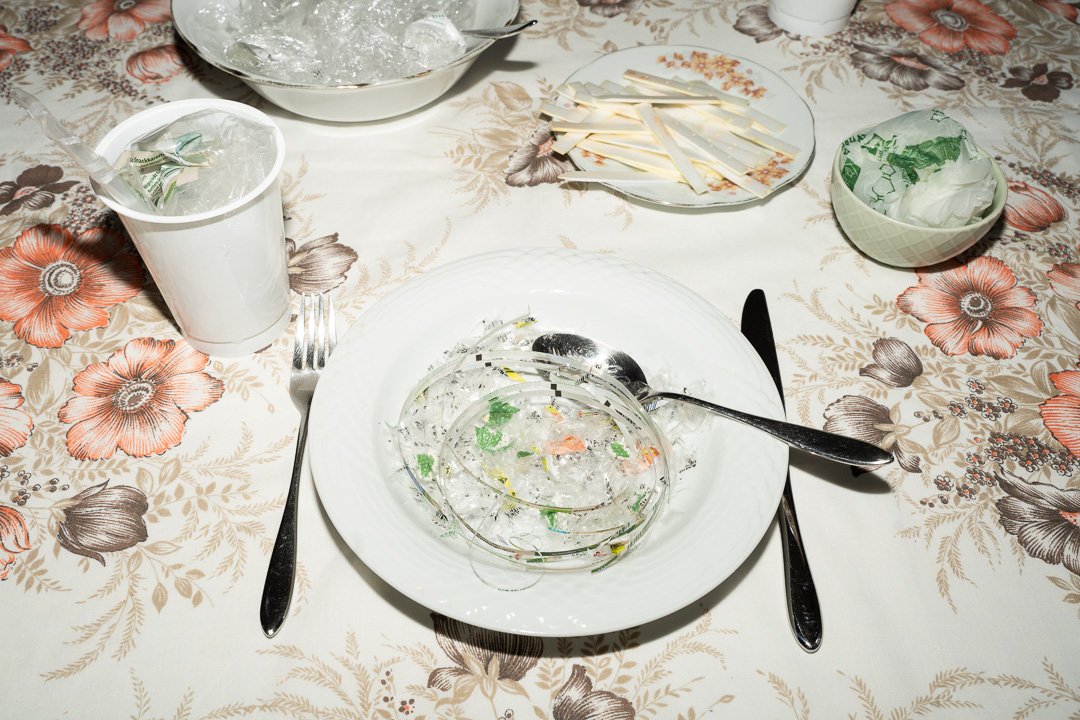

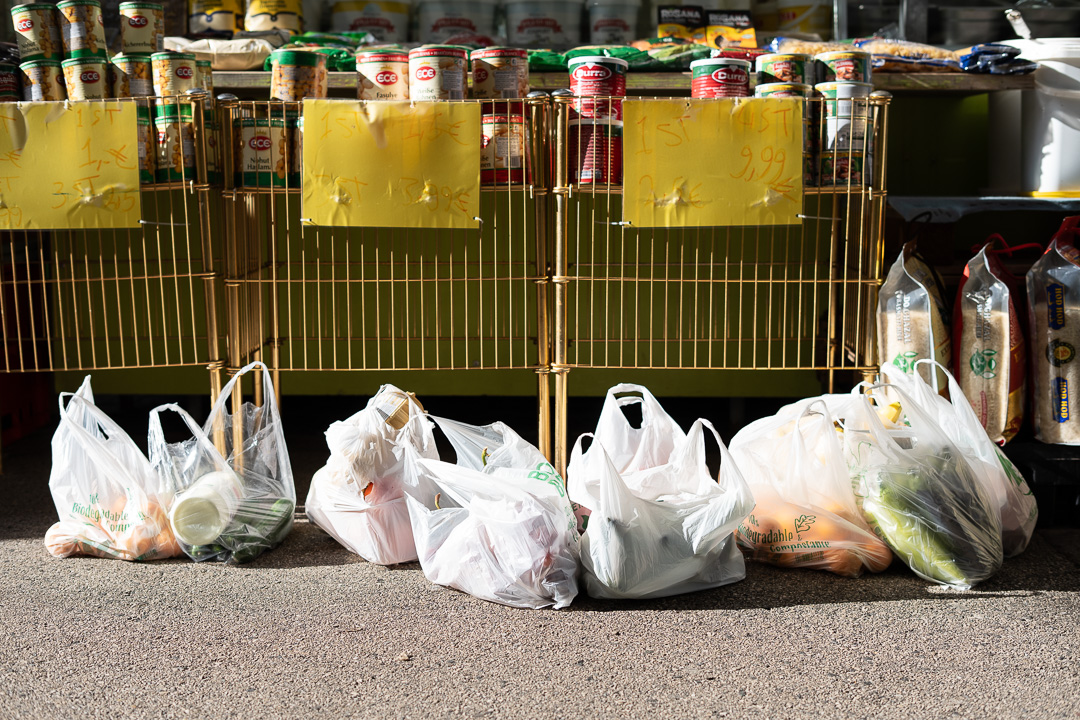
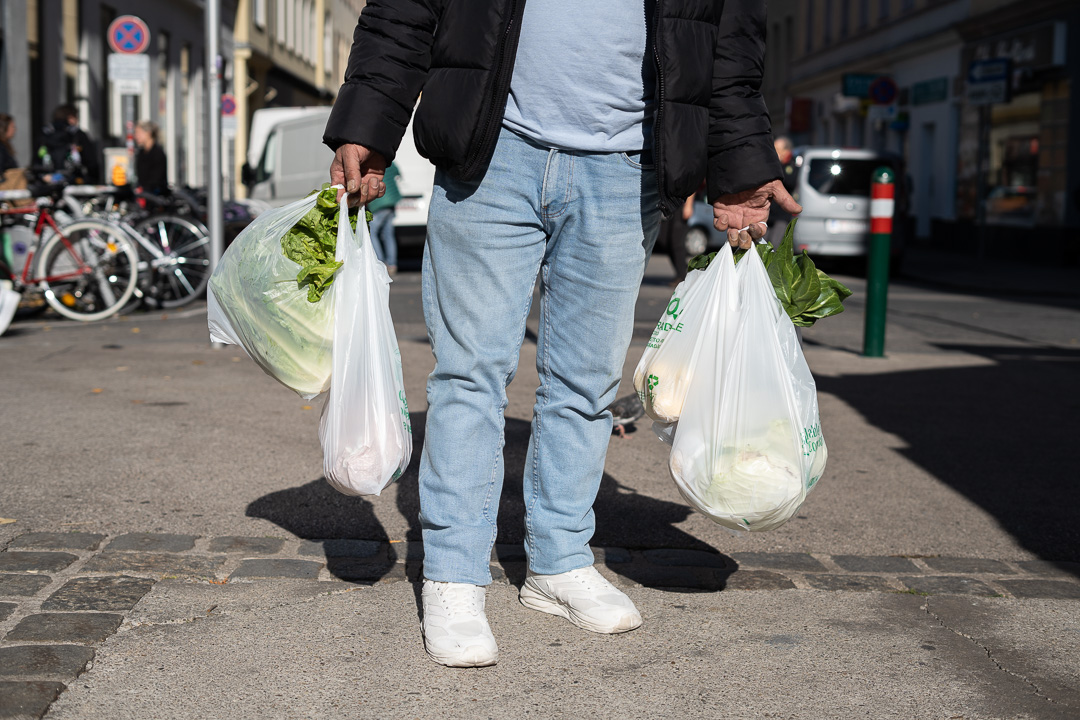
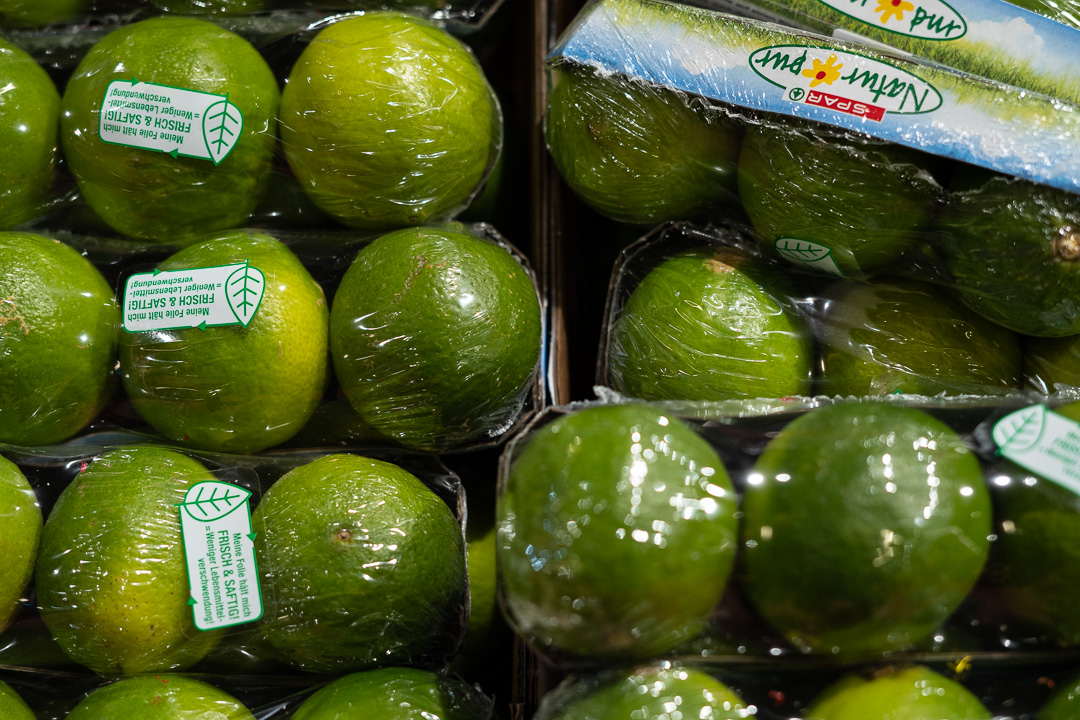

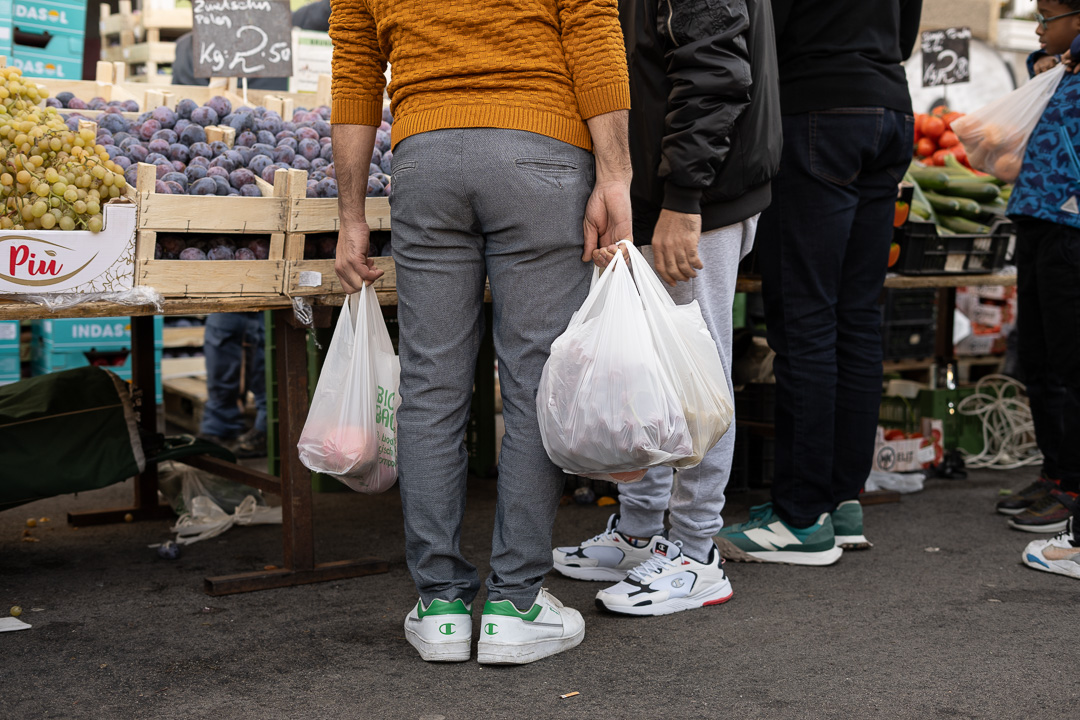


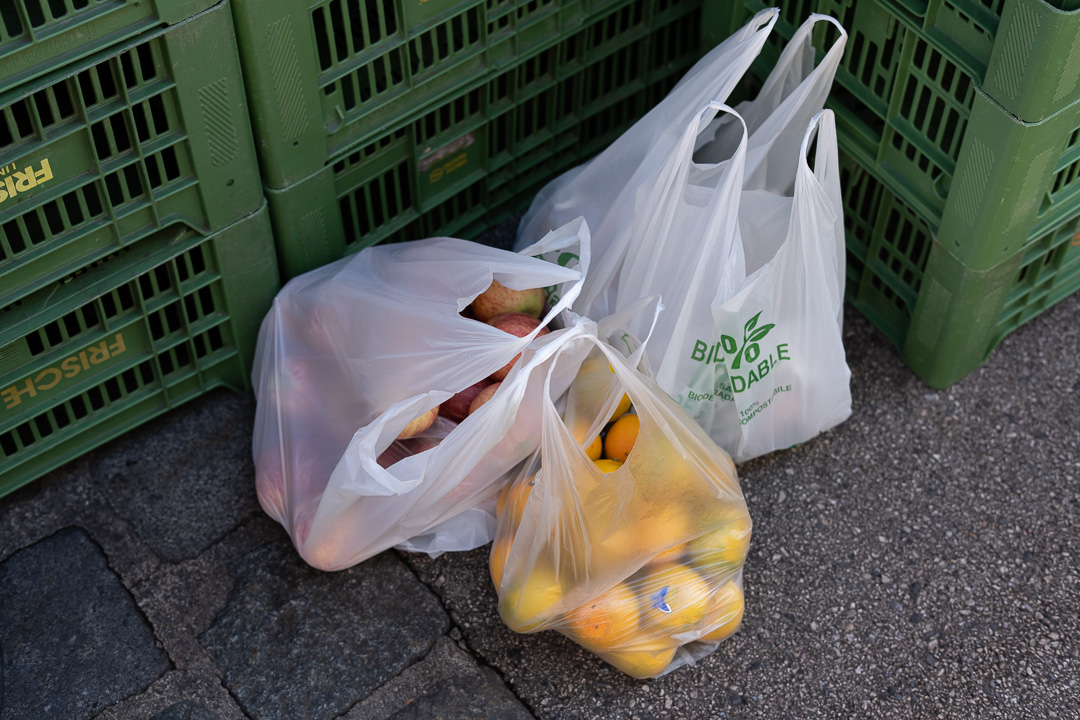

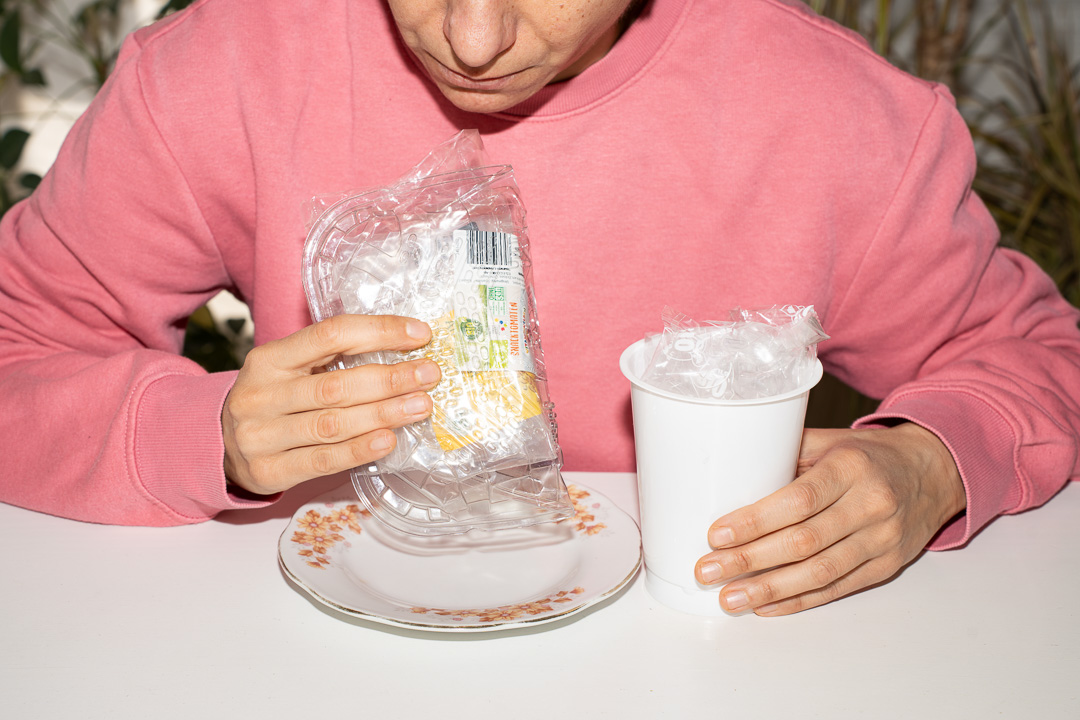

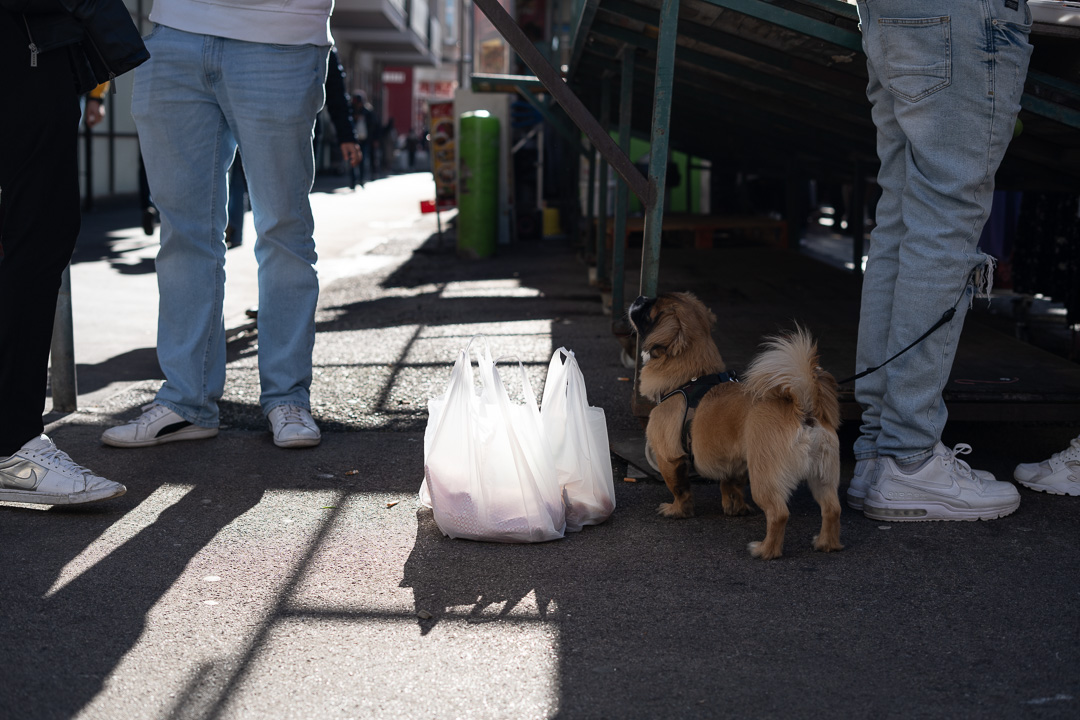
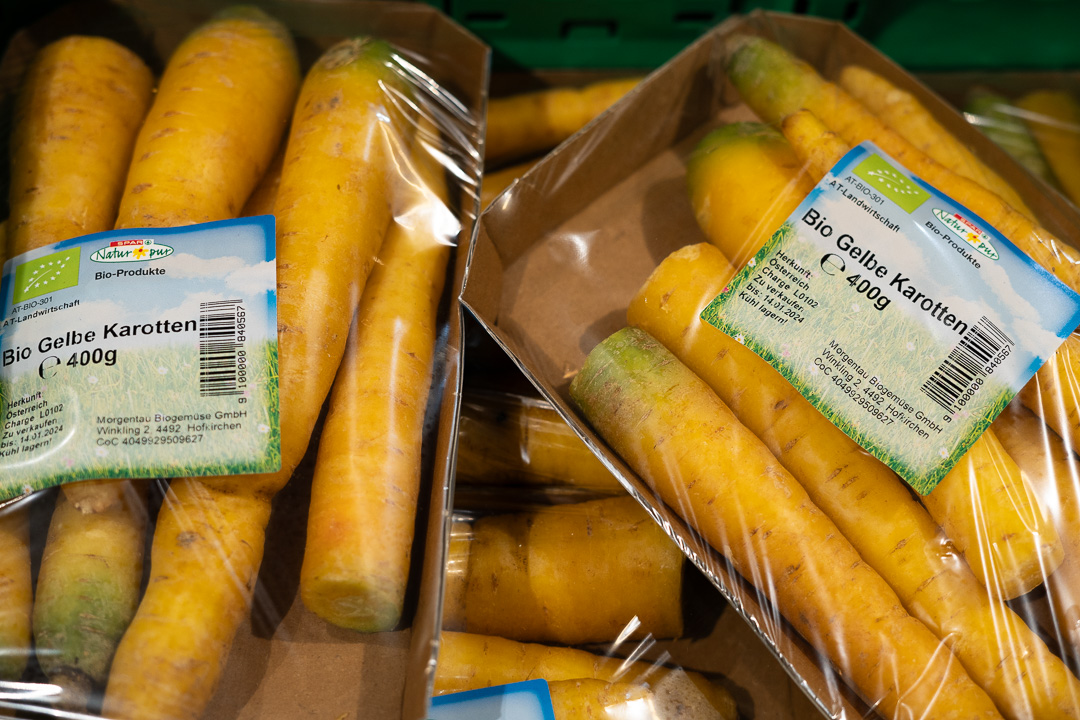


MIO BIO
Ongoing since 2023
As of January 2020, the Austrian government banned plastic bags and passed a law on the use of new, bioplastic ones. The law was necessary to reduce the enormous consumption of thin plastic bags, especially in grocery shopping. These bags are usually used only once before they end up in the waste. Thinner than 50 µm, they are one of the 10 most littered items in the EU and need up to 400 years to completely decompose in the natural environment. Before that happens, they end up in rivers and oceans where they are consumed by the animals or break down into micro-plastics. In any case, they become part of the human and animal food chain.
The new bioplastic technologies have helped to reduce the dissolution time of the thin plastic bags used in grocery shopping from a couple of centuries to a couple of months. However, this bioplastic is not made to be thrown into the bio-waste, but into the residual one because bioplastic is not 100% made of organic materials, so it cannot contribute to organic compost. More precisely, this material needs a constant temperature between 50-70 C to disintegrate up to 90% within 6 months. In other words, it is still just a waste.
Mio Bio is a photographic project that uses a documentary and staged approach to investigate the use of plastic packaging and bioplastic bags in grocery shopping.
I was visiting the green market and supermarkets in my neighborhood in Vienna where I was observing the habits of people buying healthy foods, lots of fruits and vegetables, and at the same time using many bioplastic bags to carry them home. Another observation that I could not bypass was that almost all supermarket organic products were wrapped in packaging made of standard plastics. The project moved from the public to the private space of my own where I was noticing my habits when it came to buying groceries and producing waste. This inspection raises the question: Has the term „bio“ managed to create a myth in the minds of us consumers about a healthy life and responsible behavior that will save the planet and lead us to a better future?

















MIO BIO
Ongoing since 2023
As of January 2020, the Austrian government banned plastic bags and passed a law on the use of new, bioplastic ones. The law was necessary to reduce the enormous consumption of thin plastic bags, especially in grocery shopping. These bags are usually used only once before they end up in the waste. Thinner than 50 µm, they are one of the 10 most littered items in the EU and need up to 400 years to completely decompose in the natural environment. Before that happens, they end up in rivers and oceans where they are consumed by the animals or break down into micro-plastics. In any case, they become part of the human and animal food chain.
The new bioplastic technologies have helped to reduce the dissolution time of the thin plastic bags used in grocery shopping from a couple of centuries to a couple of months. However, this bioplastic is not made to be thrown into the bio-waste, but into the residual one because bioplastic is not 100% made of organic materials, so it cannot contribute to organic compost. More precisely, this material needs a constant temperature between 50-70 C to disintegrate up to 90% within 6 months. In other words, it is still just a waste.
Mio Bio is a photographic project that uses a documentary and staged approach to investigate the use of plastic packaging and bioplastic bags in grocery shopping.
I was visiting the green market and supermarkets in my neighborhood in Vienna where I was observing the habits of people buying healthy foods, lots of fruits and vegetables, and at the same time using many bioplastic bags to carry them home. Another observation that I could not bypass was that almost all supermarket organic products were wrapped in packaging made of standard plastics. The project moved from the public to the private space of my own where I was noticing my habits when it came to buying groceries and producing waste. This inspection raises the question: Has the term „bio“ managed to create a myth in the minds of us consumers about a healthy life and responsible behavior that will save the planet and lead us to a better future?